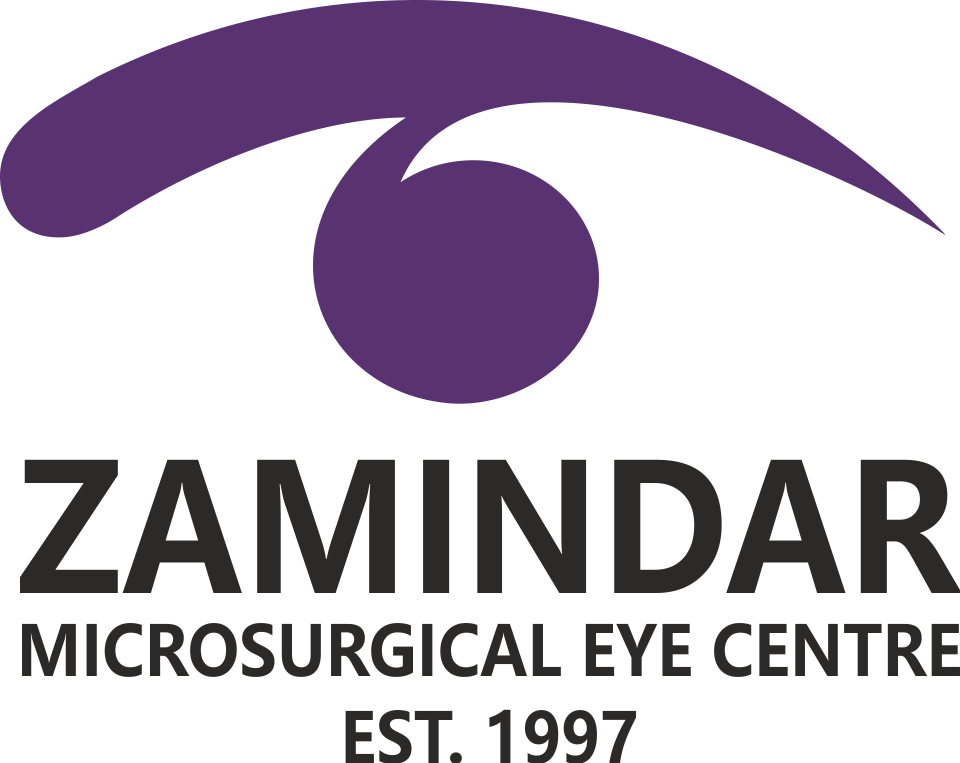
Zamindar Community Eye Care Initiative
Our Vision
To eliminate needless blindness with collaboration, capacity building & leadership.
Our Mission
To educate the community about avoidable blindness, conduct eye screening camps, and offer comprehensive eye checkups at our community centres.
“The eye is the window to the soul, and good vision is key to a full and rich life”
A Heartfelt Commitment to Affordable and Accessible Eye Care
Since 1997, Zamindar Microsurgical Eye Centre has been committed to providing accessible eye care through its Community Eye Care Initiative. As part of this mission, we offer free OPD services every Thursday at Zamindar Children’s Eye Centre. To expand our reach, we transformed our Jai Bharat Nagar Centre into a dedicated Community Eye Care Centre on May 1, 2024, ensuring more people receive essential eye care services.
With extended working hours from Monday to Saturday (9:00 AM – 7:00 PM), our Community Eye Care Initiative now impacts even more lives. This expansion reinforces our mission to prevent blindness and improve vision care accessibility. At Zamindar Microsurgical Eye Centre, we believe that high-quality, affordable eye care should be available to everyone, regardless of their socio-economic background.
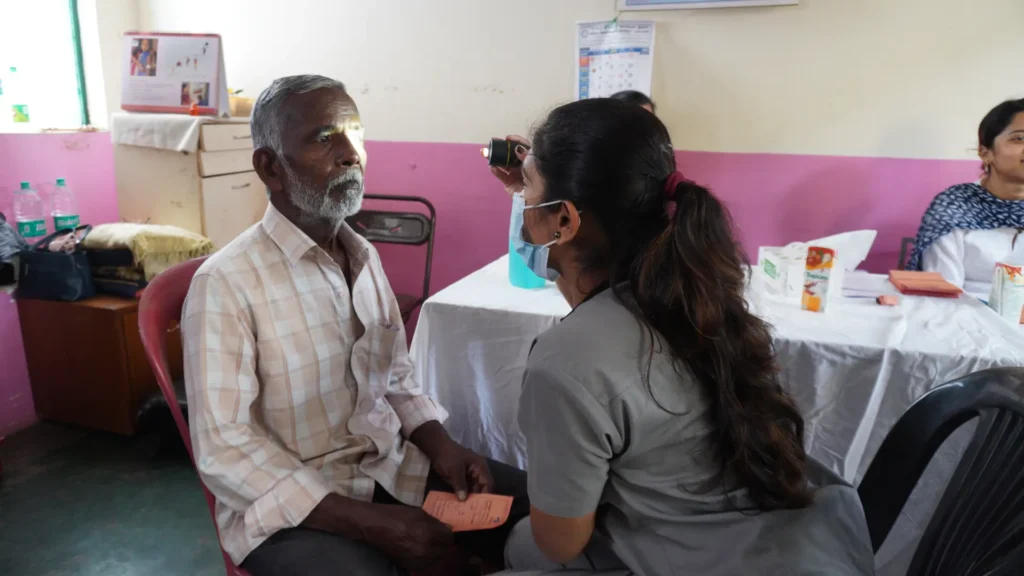
Why Our Community Eye Care Centre Matters
Community Eye Care Centres are crucial in bridging the gap between quality eye care and affordability. They play a significant role in enhancing vision health and preventing blindness in underserved populations.
Accessibility and Affordability:
These centres cater to all communities, thus ensuring essential eye care services. The low-cost or free services provided by them make sure that no one is left in the dark due to financial limitations.
Comprehensive Eye Exams:
Thorough and regular eye exams help catch and treat conditions early, preventing them from turning into severe issues and giving people the gift of clear sight.
Treatment and Surgery:
Community Eye Care Centres are always on standby to address a wide range of eye conditions, from common refractive errors like myopia and hyperopia to more serious diseases such as glaucoma, diabetic retinopathy, cataracts, and age-related macular degeneration (AMD). They also offer surgical interventions, restoring sight and hope to those in need.
Awareness and Education:
These centres take it upon themselves to educate the masses about the importance of eye health. Essential know-how is provided thus empowering individuals to take proactive steps in protecting their vision and seeking timely care.
Early Detection and Prevention:
With a focus on early detection, Community Eye Care Centres play a vital role in preventing the progression of debilitating eye diseases. By catching conditions like glaucoma and diabetic retinopathy early, they offer a chance for effective management and a brighter future.
Eye Health in India: A Focus on Major Eye Conditions and Blindness

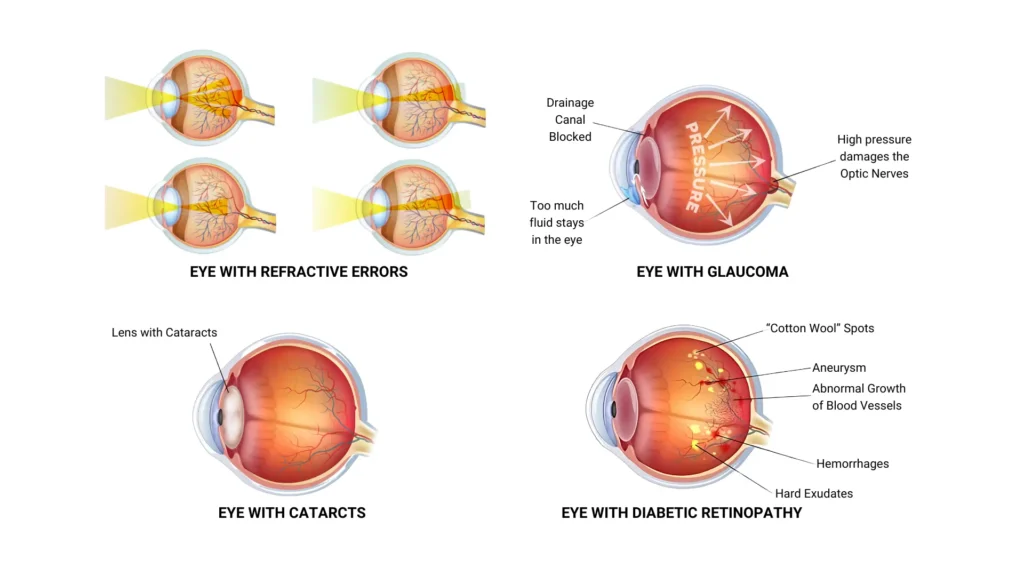
India faces significant challenges in eye health, with millions affected by various eye conditions. Research and surveys provide critical insights into the prevalence and impact of these conditions.
Cataract – Leading Cause of Blindness
Cataracts account for 66.2% of blindness cases in India. Studies reveal that 62.6% of individuals aged 50+ suffer from cataracts, making early surgery essential for restoring vision.
Refractive Errors: A Growing Concern
Refractive errors such as myopia, hyperopia, and astigmatism affect 53.1% of India’s population. Unfortunately, many cases remain uncorrected, impacting productivity and learning.
Glaucoma – The Silent Thief of Sight
Glaucoma, which causes irreversible blindness, affects over 11.2 million people in India. Alarmingly, many remain undiagnosed due to the lack of early symptoms.
Diabetic Retinopathy: A Rising Threat
With the increasing prevalence of diabetes, around 18% of diabetic patients develop diabetic retinopathy, a condition that can lead to blindness without proper management.
Corneal Opacity and Prevention
Corneal opacity accounts for 7.1% of blindness cases and is often caused by infections, injuries, or vitamin deficiencies. Thus, improved eye care practices are crucial in preventing this condition.
Posterior Segment Disorders and AMD
Age-related macular degeneration (AMD) affects 1.1% of individuals aged 60+, leading to significant visual impairment. Fortunately, specialized eye care can slow its progression.
National Blindness Statistics
The National Blindness and Visual Impairment Survey (2015-2019) reported a 0.36% blindness rate among people aged 50 and above. Although blindness rates have declined, continued efforts are needed to improve vision care.
Spread the Word: Empower Your Community with Eye Care
Our Community Eye Care Centre is a lifeline for thousands, offering accessible and affordable vision care. With extended hours and expanded services, we are making a real impact in preventing blindness.
Help us reach more people! Share this information with friends, family, and local communities so that those in need can benefit from free and subsidized eye care services.
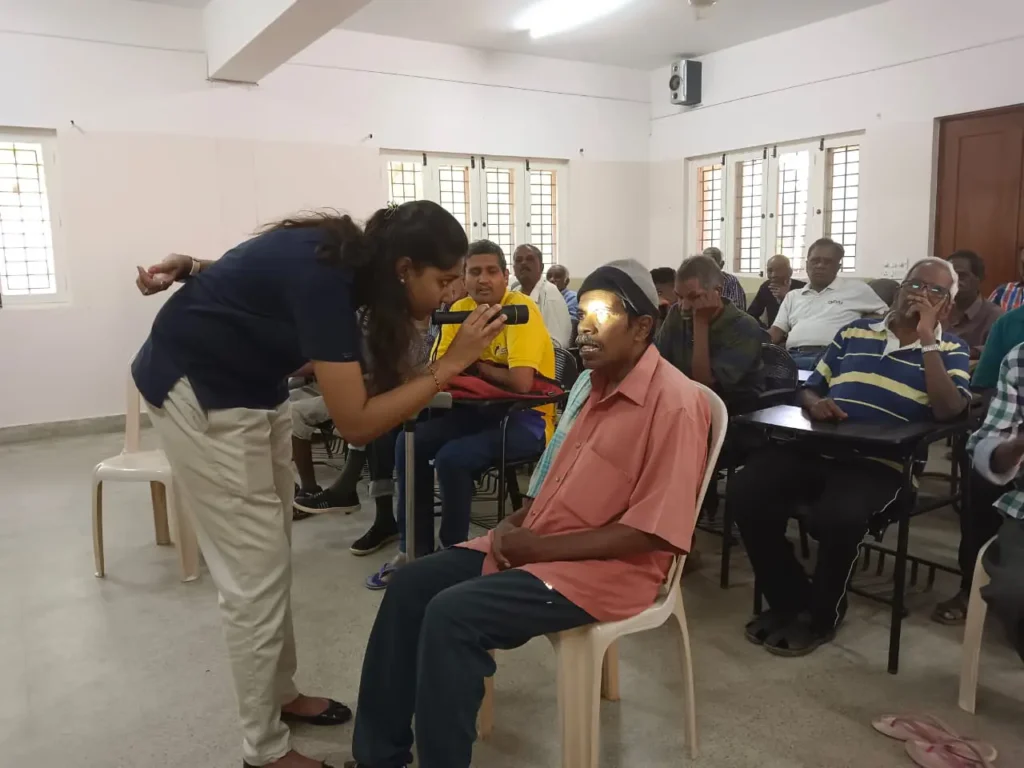
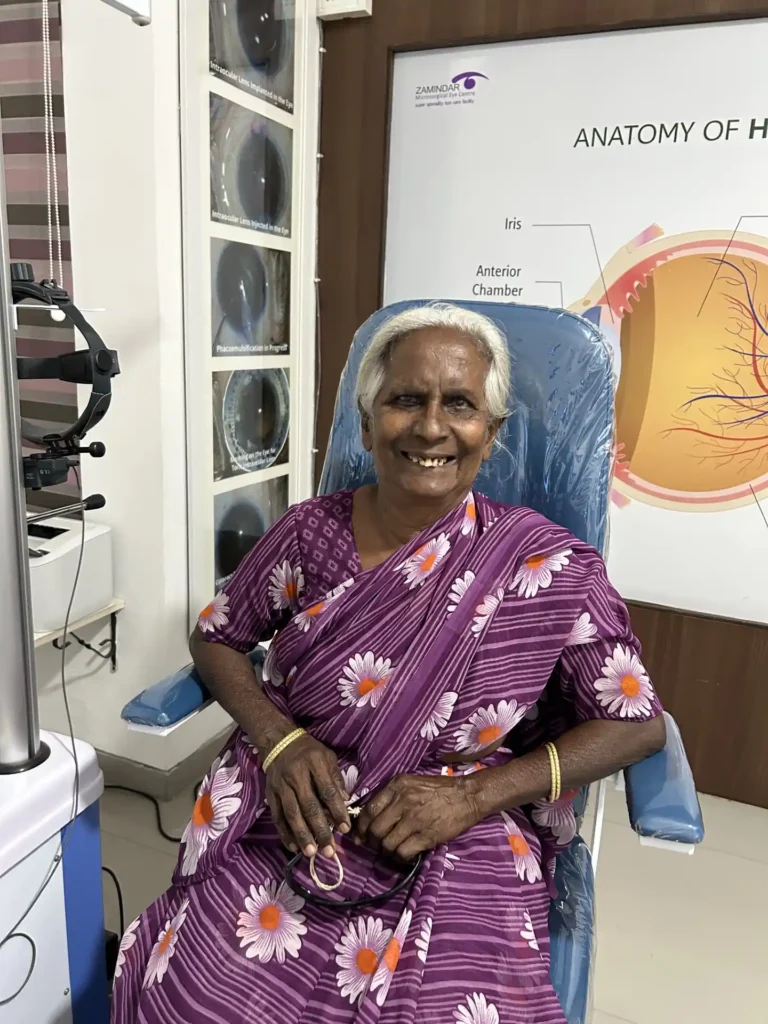
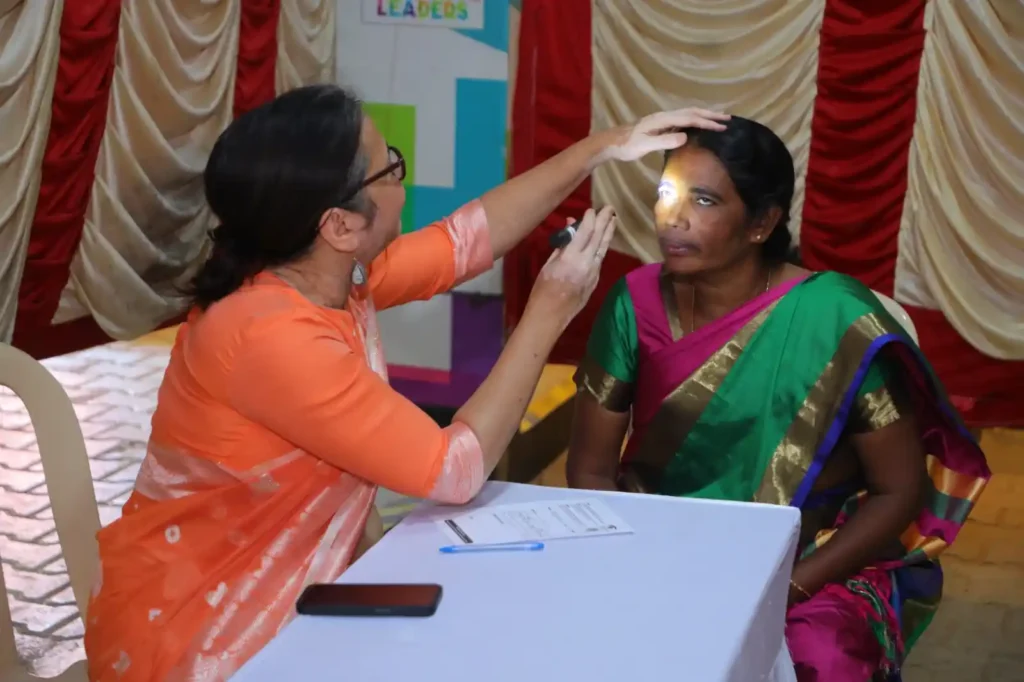
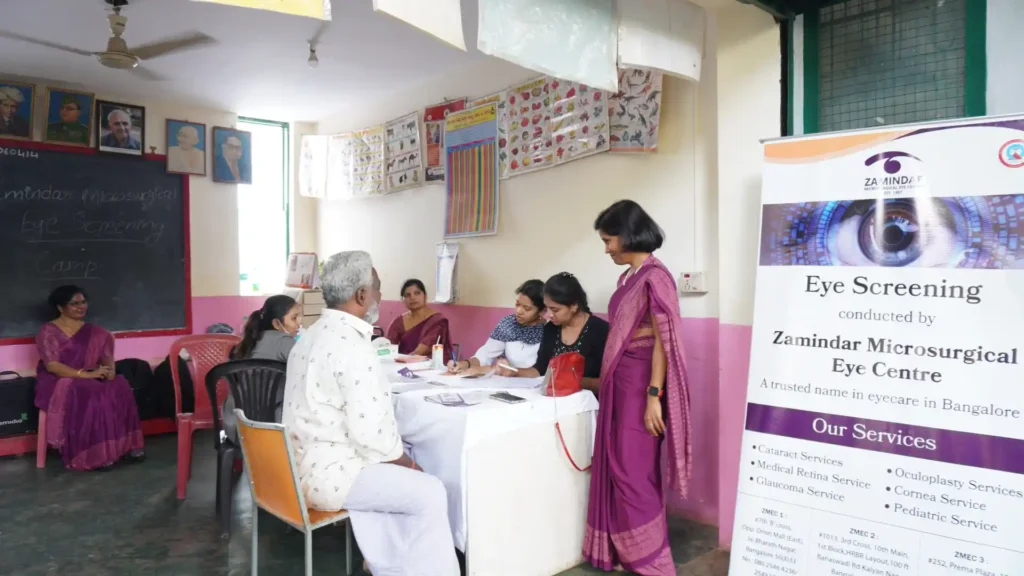
How You Can Support Community Eye Care
Sponsor a Cataract Surgery
For ₹6,000, you can cover the cost of a life-changing cataract surgery for one eye. Your contribution restores sight and transforms lives.
Suggest Locations:
Inform us about specific underprivileged communities around this hospital area that need urgent eye screening camps, and partner with us to organize one there.
Create awareness drives:
Organize a session at your workplace, school, or community center. Our expert team will educate attendees about preventing avoidable blindness.
Spread the Message:
Volunteer your social media platforms or personal networks to share critical information about eye health awareness and early detection.
Visit us at:
Zamindar Microsurgical Eye Centre 1, 7th B Cross, 1st Floor, Jai Bharat Nagar,
Banaswadi Road, Opp. Orion East Mall, Bangalore-33
Timing: Monday to Saturday: 9:00 a.m.-7:00 p.m.
Phone Numbers: 080 2545 3655 / 4090 0562
